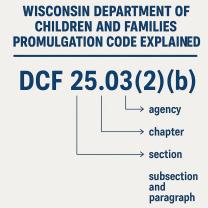Is real property considered part of an estate?
Yes, real property is typically considered part of an estate when someone passes away. An estate comprises all the assets, properties, and debts that a person leaves behind upon their death. Real property, such as land and real estate, is an important component of an estate and is subject to estate planning, distribution, and potential taxation.
Here are some key points regarding real property's role in an estate:
Inheritance and Distribution: When a person passes away, their real property becomes part of their estate and is subject to the distribution of assets according to their will or state laws of intestacy (if there is no will).
Estate Taxes: The value of real property is included in the total value of the estate, which may have implications for estate taxes, depending on the estate's total value and the applicable tax laws. Some jurisdictions have estate tax thresholds, and estates exceeding these thresholds may be subject to estate taxes.
Probate: Real property typically goes through the probate process, which is the legal process of validating a will, identifying and valuing assets, paying debts and taxes, and distributing property according to the deceased person's wishes or state law.
Title and Ownership: Real property may be held by an individual, jointly with another person (e.g., as joint tenants or tenants in common), or in a trust. How the property is owned can impact how it is transferred after the owner's death.
Estate Planning: Many individuals engage in estate planning to manage their real property and other assets. This may include creating a will, establishing trusts, designating beneficiaries, and taking steps to minimize estate taxes.
Survivorship Rights: The legal title and ownership structure of real property may impact what happens to it upon the owner's death. For example, joint tenancy often includes a right of survivorship, meaning that the surviving joint tenant automatically inherits the deceased joint tenant's interest in the property.
Property Liabilities: Real property in an estate may also include any associated mortgages, liens, or other financial obligations that must be addressed during the probate process.
Overall, real property plays a significant role in the settlement of an estate, and careful estate planning is often necessary to ensure the smooth and efficient transfer of real property to heirs or beneficiaries while complying with relevant laws and regulations. It's advisable for individuals to work with an attorney or estate planning professional to navigate the complexities of estate planning, especially when it involves real estate.
Understanding the concept of real property in estate planning
Real property is land and anything permanently attached to it, such as buildings, fences, and trees. In estate planning, real property is treated differently than personal property, which is any movable property, such as furniture, jewelry, and investments.
Differentiating between real property and personal property in an estate
The key distinction between real property and personal property is that real property is fixed in place, while personal property is movable. This distinction has a number of legal and financial implications, including:
- Transfer of ownership: Real property is transferred through a deed, which is a legal document that must be recorded with the county clerk's office. Personal property can be transferred simply by delivering it to the new owner.
- Probate: Real property is subject to probate, which is the court-supervised process of administering a deceased person's estate. Personal property is not subject to probate if it is valued below a certain threshold.
- Taxation: Real property is subject to property taxes, which are assessed by the local government. Personal property is not subject to property taxes, but it may be subject to other taxes, such as capital gains tax.
The legal and financial implications of real property in an estate
The legal and financial implications of real property in an estate can be complex. Some of the key issues to consider include:
- Title: Who owns the real property and how is it titled? This is important because it will determine how the property is distributed after death.
- Mortgages and other liens: Are there any mortgages or other liens on the property? These will need to be paid off before the property can be distributed.
- Taxes: Will the property be subject to any estate taxes or capital gains taxes?
- Maintenance and upkeep: Who will be responsible for maintaining and upkeeping the property after death?
Strategies for managing and distributing real property within an estate
There are a number of strategies for managing and distributing real property within an estate. Some of the most common strategies include:
- Joint tenancy with right of survivorship: This is a type of ownership that allows property to be automatically transferred to the surviving joint tenant upon the death of another joint tenant.
- Living trust: A living trust is a legal document that allows you to transfer ownership of your assets to a trustee, who will manage and distribute the assets according to your instructions.
- Will: A will is a legal document that allows you to specify how you want your assets to be distributed after death.
Estate planning considerations related to real property ownership
If you own real property, it is important to consider the following estate planning considerations:
- Who will inherit your property? Do you want to leave your property to your spouse, children, other family members, or a charity?
- How will your property be distributed? Do you want to distribute your property equally or give different shares to different people?
- What are your tax concerns? Do you have any concerns about estate taxes or capital gains taxes?
- Who will be responsible for managing and maintaining your property after death?
It is important to discuss your estate planning goals with an experienced estate planning attorney to develop a plan that meets your specific needs.
Here are some additional tips for estate planning related to real property ownership:
- Keep your records organized. This includes keeping track of the title, mortgages, and other liens on your property.
- Update your estate plan regularly. Your estate plan should reflect your current wishes and circumstances.
- Communicate your wishes to your family and loved ones. This will help to avoid any confusion or conflict after your death.











